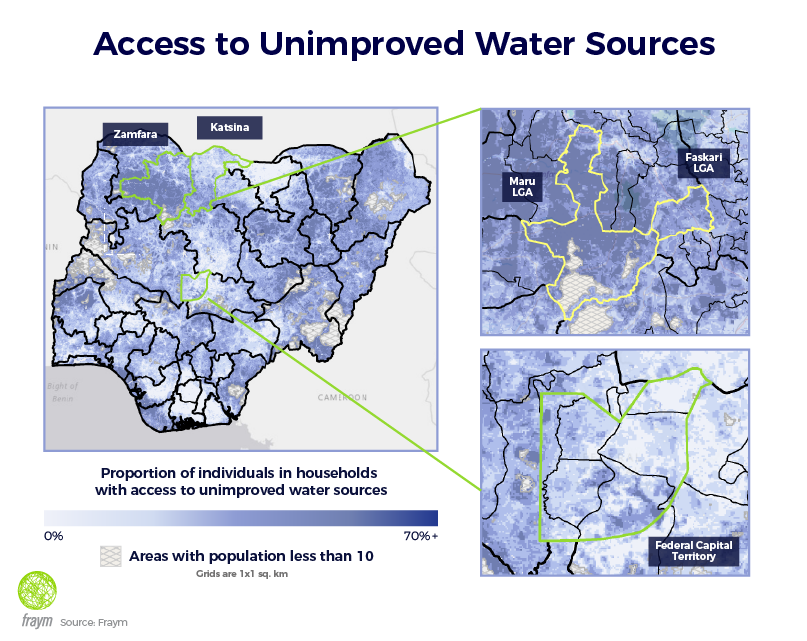Build Effective Social and Behavior Change Strategies

By Judd Devermont
Former senior advisor to Fraym

The COVID-19 pandemic is straining the capacity of many governments to deliver essential services, increasing the risk of unrest and violence involving citizens. Where governments are shifting limited resources to combat the spread of the virus, violent groups are taking advantage of the situation to mobilize support and sow instability. Nigeria has had the largest increase in violence targeting civilians since the outbreak, attributed to militias and other violent groups exploiting weakened state capacity and state forces enforcing lockdown measures. Using access to services as a proxy for state capacity, Fraym created a composite index made up of our data on public service delivery indicators including electricity access, quality of drinking water, and sanitation facility access, among others. The results provide an understanding of local-level Nigerian capacity and help Fraym clients to identify which cities may be ripe for future unrest.

Fraym first identified Nigerian local government areas (LGA) with significant incidences of violence against civilians since the outbreak by state or non-state forces, use of force by state forces to disperse protests, and riots. To do so, Fraym pulled ACLED data from October 2019 to the present, and segmented these events into pre- and post-COVID period using March 1st as the dividing line.
Next, Fraym compared LGAs with an increase in instances of instability with those having low capacity to deliver essential services according to our index. Nearly 70 percent of all LGAs with low scores for access to services experienced rising violence against civilians since the onset of the COVID-19 pandemic.
In contrast, LGAs that scored well on our access to services index did not see increases in instability. The five LGAs that make up the Federal Capital Territory (FCT) scored high for capacity, which as the seat of the federal government, is unsurprising. These LGAs witnessed little or no change in disorder in the pre-COVID period to after COVID-19 hit the capital in mid-March.
Fraym’s access to services index is a revealing window into localized vulnerabilities that enables our partners to anticipate future unrest and the contributing factors behind it. It demonstrates correlation between violent incidents and unrest during Covid-19 and low state capacity to provide essential services. In Nigeria, this link is demonstrated in LGAs with poor access to services like Faskari and Maru and shows the reverse in LGAs scoring well on our index like those in the FCT. Governments already failing to meet the needs of their citizens before the added strain of COVID-19 are more at risk for an increase in violence involving civilians, either from clashes between state security forces and residents under lockdown or communal militias.